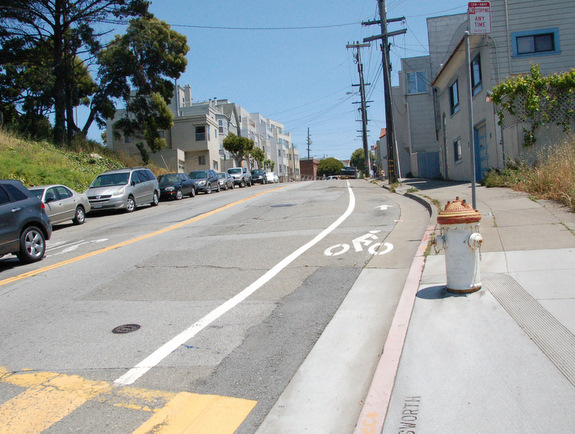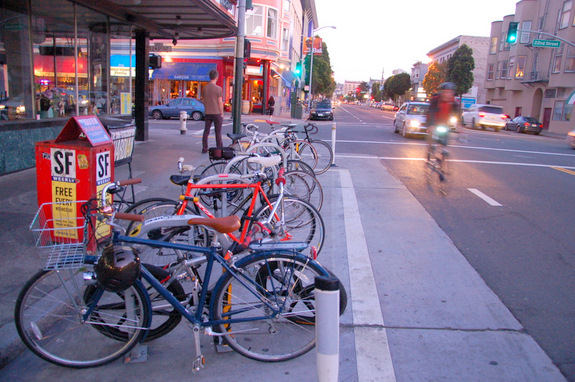In post-bike injunction San Francisco, the SF Municipal Transportation Agency (SFMTA) is gearing up to install some of the final bicycle projects held up in the Bike Plan for several years.
The agency's efforts will likely get another shot in the arm after a grant was approved today by the SF Board of Supervisors City Operations and Neighborhood Services Committee. Although the SFMTA's Bicycle Program would ultimately be better served by a system of dedicated revenue streams, it's one more step towards catching up with improvements that should have begun rolling out five years ago.
"The landscape for bicycle projects is changing quite rapidly since the injunction's been lifted," said Oliver Gajda of the SFMTA's Sustainable Streets Division, who pointed to downtown bike lanes on 2nd, 5th, Fremont, and Howard Streets as well as a cycle track on Innes Avenue near Hunter's Point as some of the priority projects that could benefit from the grant.

The funds come from the state's Transportation Development Act, which allocates some money to pedestrian and bicycle projects. Once cleared by the full Board of Supervisors, $355,000 would go to the SFMTA for "various pedestrian and bicycle projects" along with $341,000 for the Department of Public Works to fix sidewalks and build wheelchair-accessible curb ramps.
The SFMTA Bicycle Program has compiled a schedule of completed and upcoming projects on their website. Work has begun on Portola Drive and the Alemany Boulevard cycle track, while streets next in line for improvements include Potrero Avenue from 25th to Cesar Chavez Streets, Sagamore Street and Sickles Avenue by the Daly City Border, and the notoriously harrowing Bayshore Boulevard.
By the end of the year, Golden Gate Park is set to receive the city's first parking-protected cycle track. By summer's end, the SFMTA expects to stripe bicycle lanes in nearly every part of the city from Phelan Avenue by the City College main campus to John Muir Drive by Lake Merced to Illinois Street along the eastern waterfront.
That should be welcome news to D11 Supervisor John Avalos, who said the city's outer neighborhoods seem to be neglected when it comes to bike improvements.
"I often see that a great deal of the resources go in the center part of the city and fewer go out towards the Excelsior, Sunset, and [Visitacion] Valley," said Avalos. "To the extent that we're able to re-prioritize and make things happen out that way, I think we'd be hitting our goals of being a transit-first city."






